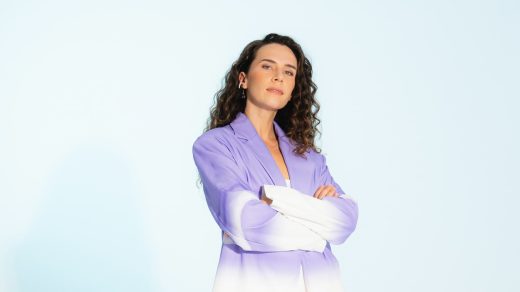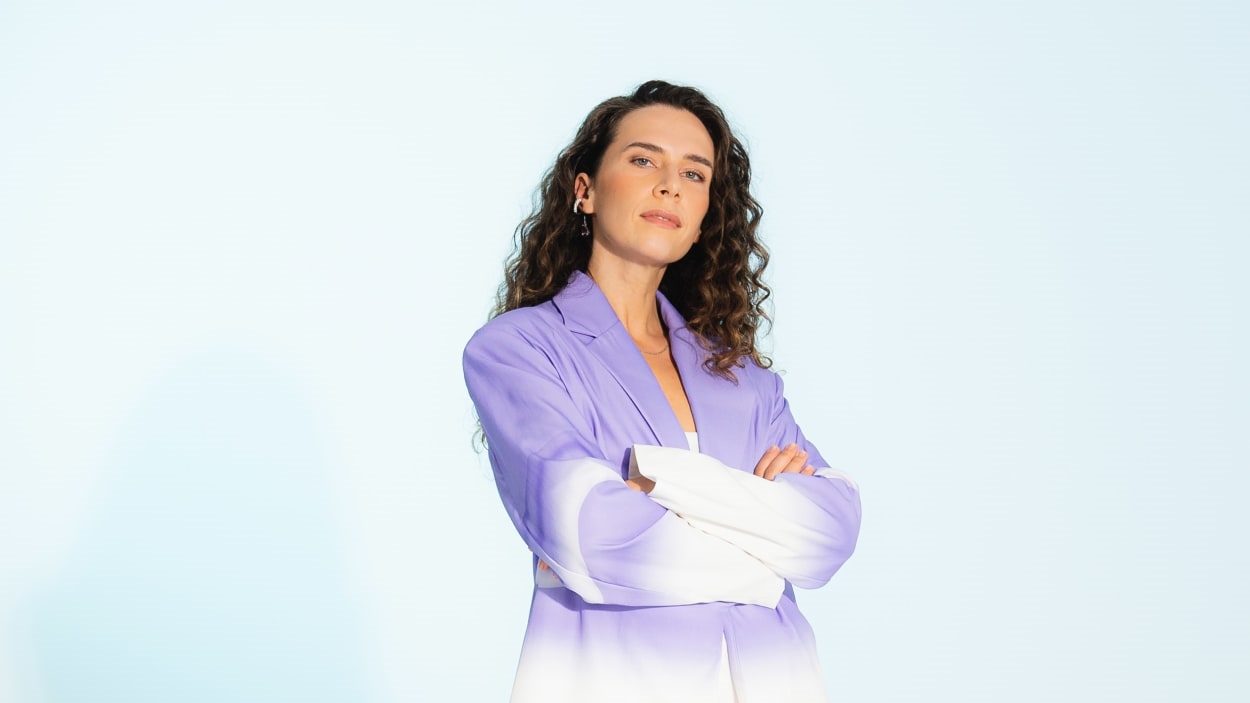How Feeld transforms the dating app into a choose-your-own adventure
On Wednesday, two-term New York City Mayor and failed Presidential candidate Bill de Blasio, and his wife, Chirlane McCray, announced that they were splitting up after almost 30 years of marriage. But that doesn’t mean they’re getting a divorce. Instead, the pair told the New York Times that they would stay married and continue to share their Brooklyn brownstone while dating other people.
Even with his newly dyed hair and 6’5? stature, de Blasio will have his work cut out for him. Finding someone to date in the city is hard enough, and finding someone willing to come home to the brownstone you share with your ex may seem like an insurmountable task.
Luckily, as with all things these days, there’s an app that can help.
Feeld, which describes itself as a dating app for “open-minded individuals,” facilitates such unconventional arrangements, catering explicitly to all types of relationships, kinks, or fetishes. One-third of all users are in a couple, and 50% of them identify as something other than heterosexual.
Feeld, which is nine years old, has hundreds of thousands of users in 100 countries, and has seen impressive growth over the past few years, generating more than millions of downloads. This is driven in part by its transparent user experience. Over the past few years, Feeld has reimagined how a dating app can work, incorporating several features intended to reduce stigma and get users to share their desires explicitly.
The company claims that it’s been profitable since 2017; although Feeld is free to download, it charges users roughly $12 a month for access to such premium features as the ability to send private photos, or browse anonymously. It also proudly touts that it’s done so without spending much on advertising, relying largely on word of mouth. “Dating apps are crowded with judgment and expectations,” says Ana Kirova, Feeld’s cofounder and CEO, “but on Feeld, you can be anyone and meet people as you are at that moment.”
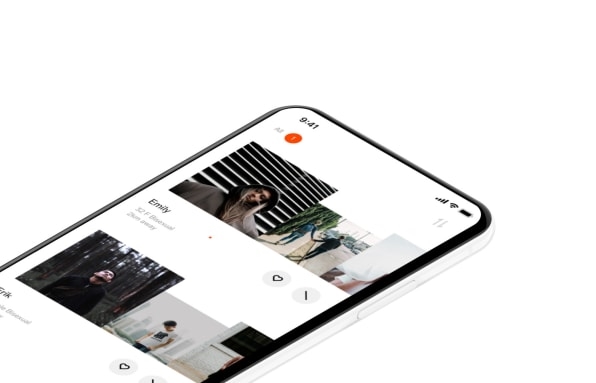
A personal journey
Kirova, who became CEO in 2021 after working on the company’s product team, says that her own journey inspired the creation of the app in the first place. A slender, thirtysomething Bulgarian who began her career as a graphic designer in London, she found herself attracted to women while in a long-term relationship with her boyfriend and fellow designer, Dimo Trifonov. “I met a woman and I really liked her. I liked her the way that I like Dimo. And I was really lost because I loved him,” she explains calmly, adjusting the leopard-print bra strap peeking out of her white tank top. “I told him about it and wrote him this letter. I thought he was going to leave me, but instead we decided to try dating as a couple.” The pair tried using Tinder and other websites to meet people, but found themselves subject to social stigma. “A lot of people told us we were swingers, but it was really about intimacy and getting to know other people,” she says.
Originally called 3nder, the app caused an early stir in the media. “This journalist for a U.K. publication saw our buggy first version of the app,” Kirova recalls, “and wrote an article being like ‘The youth all just want sex, look at these terrible people making this filthy app.’” The day after the article came out though, the app was downloaded several thousand times. After the company was sued by Tinder owner Match Group—which Kirova can’t talk about—3nder rebranded as Feeld. In 2020, the cofounders decamped to Portugal, though the remote workforce is based around the world.
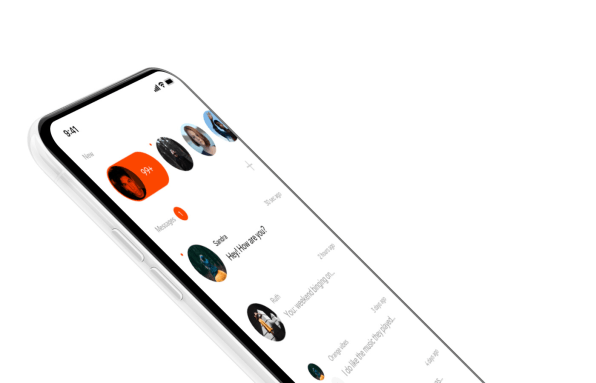
Designing Dates
At first glance, Feeld’s feed looks familiar; similar to that of Bumble or Tinder, but the information that the app collects—and its user experience—is distinct. Although Feeld, like other dating apps, requires users to swipe through a collection of photo-forward profiles, swipers do not have to like or dislike a profile. Instead, they can toggle back and forth as they consider their options. Profiles are surfaced purely based on a user’s location and preferences, which the user has selected. There is no algorithm to optimize the types of people users might like more, or to rate the attractiveness of a user and present options based on similar attractiveness. Users can add additional filters—specific sexualities or genders—to narrow down their options if they want. ??”We offer filters for people so they can search for people specifically based on their desire,” Kirova says, “but we’ve kept it as organic as we can, to encourage serendipitous encounters.”
Feeld users—both singles and couples can create profiles on the app—often adopt pseudonyms, ranging from the explicit (e.g. “EthicalHedonist,” “HungDaddy”) to the quotidian (“Jake T”). Kirova says that users typically range from 25- to-35-years-old and live in big cities. On the app, users share a short bio before describing their appetites specifically, anything from GGG (good, giving, game) to ENM (ethical non monogamy), and can delineate how many people they would like to be involved with. The interests section tends to be more prosaic: A BDSMer might also describe their love for gardening, travel, or philately. If de Blasio described his living arrangement in his profile bio, he likely wouldn’t stand out from other Park Slope users.
Feeld has a list of more than 20 sexualities and genders to choose from when users set up a profile, and they can always change their minds. In fact, many of them do. “Users can change their gender three times,” Kirova says. “If they need to do it more times, they can contact us and we can help; there’s a limit because we built our algorithm to sort by gender.” She adds that many users change the description of their sexuality as they learn more about themselves while using the app.
Coming up with the list was not an easy task. Feeld originally compiled an array of gender and sexuality options internally, using information that the product team googled. Kirova decided to work with a gender and sexuality expert after making a well-intentioned change to the gender list that was poorly received. “When I was a product manager, the genders were ‘man, woman, and trans,” Kirova says. “I renamed the trans option to be called ‘beyond’ with the idea that they are basically beyond labels.” It was only when she received a long message from a transgender user that she realized she needed help. “She said, ‘Am I beyond human?’ I was confronted with how deeply personal these labels are for people,” Kirova says.
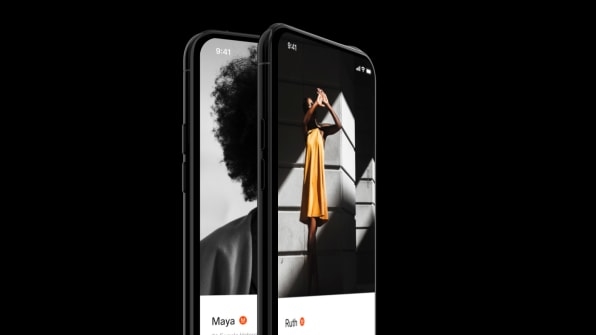
Keeping it Human
The expert that the company hired originally compiled around 60 recommendations for labeling sexuality. But Kirova quickly realized that so many choices could overwhelm users. They worked with the specialist to narrow down the list to roughly 20 options.
Feeld also refers to its users as “humans,” in part to combat the, well, dehumanizing experience of being judged on an app (though I am not a human on Feeld, I interviewed several for this article and briefly set up a profile to take a look at the user experience). Notifications from the app read, “34 humans liked your profile,” in an attempt to give users a sense of responsibility toward each other. In keeping with Feeld’s ethos—and in a move that surely appeals to the large number of app users with hammer-and-sickle emojis on their profiles—Kirova has also instituted a company policy of paying all 85 employees a minimum of $80,000 a year.
Perhaps as a result of these features, using the app is a remarkably civil and transparent process. It’s unlikely you’ll receive an unsolicited, inappropriate picture, and if a user is married, it’ll be advertised in their profile. The social currency is also different from the likes of Tinder; boasting of your Ivy League degree, or showing off a large fish you caught won’t get you far. Some “humans” even post self-deprecating comments like “I have an annoying voice.”
While Hinge ran an ad campaign about deleting the app after using it to find The One, Feeld users could stay on there forever, even if they find a long-term partner. Some may never meet up in real life because that’s not their end goal. One of the kinks available to select on the app? “Texting.”
That’s what Kirova, who uses her own app and is in a long-term relationship with her cofounder Trifonov, has been doing lately. There’s an interesting and attractive couple she’d like to meet in New York, but she’s nervous about it. “We’ve been talking a little bit, nothing serious. But when it came to meeting them last time, I chickened out.”
(18)

